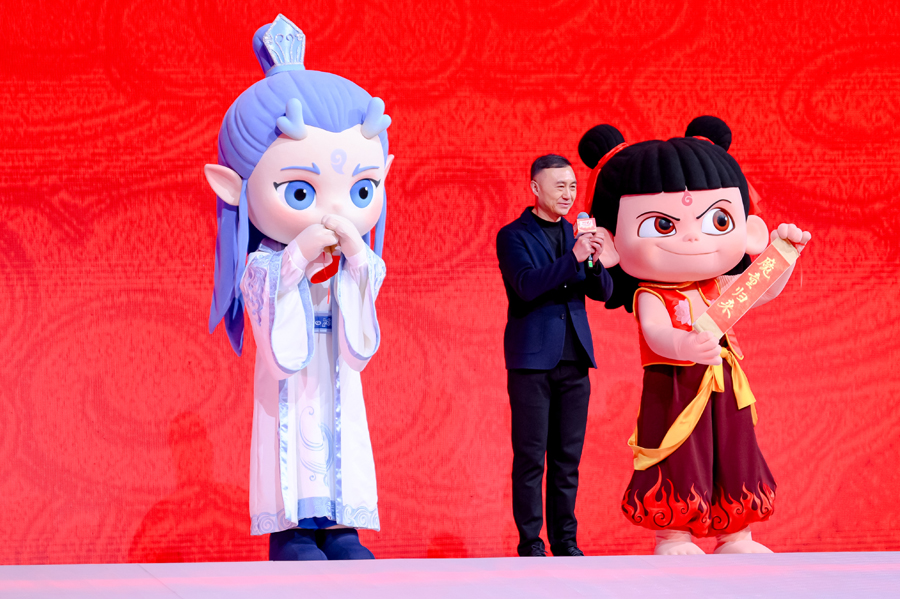
Alongside economic, political, social, and eco-environmental progress, culture stands as a foundational pillar of China's coordinated development plan.
The nation's cultural confidence, combined with faith in its development path, theory and system, underscores a deep-rooted commitment to foster a robust cultural-ethical framework in tandem with material advancement.
The strategic significance that China accords to its cultural development reverberates through its policymaking, with decision-makers recognizing its pivotal role in underpinning social stability and national security. Culture serves as a catalyst for nurturing the national spirit, preserving a historical sense of identity, and propelling economic, social and personal development on a well-rounded trajectory.
READ MORE: Tapping digital tech urged to build cultural strength
The convening of the Forum on Building up China's Cultural Strength 2025 in Shenzhen, Guangdong province, on Monday was a testament to China's unwavering dedication to enhancing its cultural prowess.
This platform, uniting academia, business and policy circles, serves as a crucible for galvanizing collective wisdom to advance the nation's cultural landscape.
Delving into critical issues surrounding the high-quality development of the cultural industry in China's modernization journey, the forum engendered a shared vision on leveraging new technologies, invigorating the cultural market, harnessing the nation's cultural reservoirs, and fostering global cultural exchanges. Proposals on policy frameworks and operational strategies emerged as guiding beacons for navigating this transformative terrain.
The burgeoning cultural industry in China not only provides a fertile ground for discourse on enhancing innovation, diversity, and public engagement, but also fortifies the bedrock of national cultural confidence.
Since the 18th National Congress of the Communist Party of China, Xi Jinping, general secretary of the CPC Central Committee, has spearheaded a cultural renaissance, elevating public communication, arts, journalism and philosophy to the forefront of national discourse.
Guided by Xi Jinping Thought on Culture, China has set its sight on becoming a cultural powerhouse by 2035, anchoring itself in the rich tapestry of Chinese civilization while embracing the digital age. Upholding Marxism as the guiding principle, fostering socialist culture, and championing core socialist values are instrumental in shaping a cultural ethos that resonates both domestically and globally.
The imperative to bolster governance capacity in the cultural domain under informationized conditions, uphold the Party's leadership, and deepen reforms underscores China's unwavering commitment to cultural-ethical advancement. The annual forum, a beacon of cultural innovation and prosperity, embodies the collective resolve to propel China's cultural narrative onto the global stage.
ALSO READ: Xi stresses high-quality cultural-ethical advancement
Beyond the symposiums and policy pronouncements, China's cultural metamorphosis is palpable in the reformation of governmental departments, aimed at enhancing responsiveness and efficacy in steering cultural industry policies and bolstering public services. The vibrancy of the cultural industry, a key driver of economic growth, exemplifies the nation's holistic approach to meeting social aspirations.
As the nation charts a course toward deeper reform, innovation, and public engagement, the imperative to forge a collaborative mechanism for sustained cultural-ethical development looms large. The clarion call for enriching cultural lives, nurturing personal development, and fortifying core socialist values underscores a steadfast commitment to fostering harmonious and cohesive national ethos.
To ignite a cultural renaissance that resonates across diverse strata of society, China must champion academic democracy, artistic expression, and international exchanges to invigorate its soft power and global appeal.
By harnessing the transformative potential of cultural heritage, creative enterprises, and cross-cultural dialogue, China can expand its cultural footprint on the world stage and draw inspiration from the collective wisdom of civilizations past and present.


